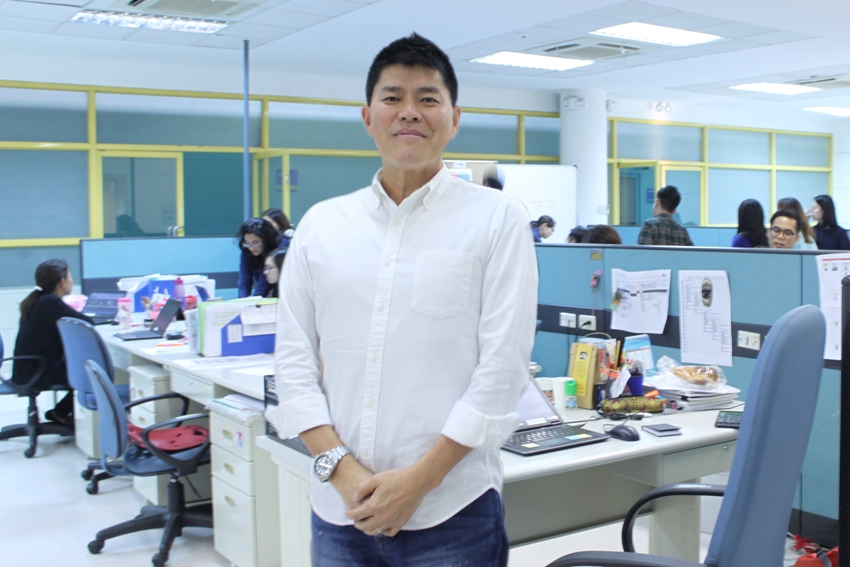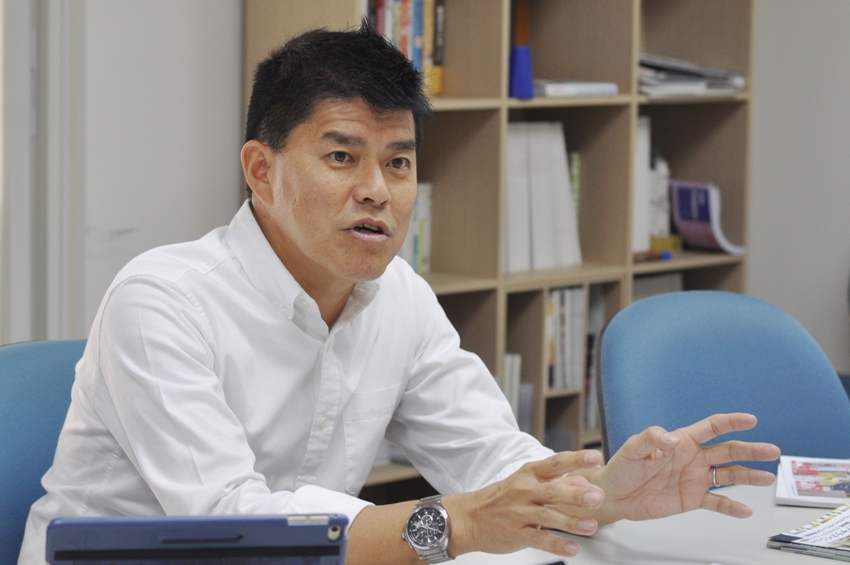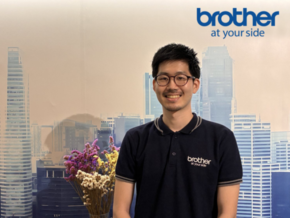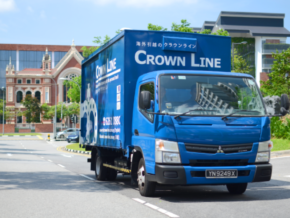Business Talk with Uniqlo’s COO Katsumi Kubota
In June 2012, Uniqlo opened its first store in the Philippines located at the SM Mall of Asia. Now, with 27 stores under their wing. including two stores opened in Cebu in 2015, we asked the COO of Fast Retailing Philippines Inc. Katsumi Kubota about his insights with regard to doing business in the Philippines and Uniqlo being a staple name in clothing.

The first Uniqlo stores in Cebu opened last October and November, and that’s 27 stores in total that are already in operation. It seemed like everything went well, do you think so too?
The human resources development went very fine. Right now, there are 27 stores. Among them, 26 stores have been operated only by Filipino employees, including store managers. “The professionals of Uniqlo” were trained with care. The thing that didn’t go smoothly enough is our slow growth. Three years have passed since we launched a business in the Philippines, but we still can’t keep up with the pace of market’s growth and its expansion. I feel that we could have done better preparation in advance for any possibilities. We are trying to map out the better strategy, and right now, Uniqlo’s head office in Japan and Uniqlo Philippines members are working together to accelerate.
What items and services of Uniqlo do you want the Filipino customers to enjoy?
Uniqlo’s clothing is “LifeWear.” We provide clothing that makes people’s “life” better. We have a strong grasp of truly great clothing to all people, and the most important thing is how we can pass on the true meaning of the top global fashion brand, Uniqlo, here in the Philippines.
While Uniqlo is on its way to globalization, you mentioned in one of your interviews that there is room for localization, such as having communication with the customers. What do you think about it now?
There are two sides to localization: rational and sensory. For rational, we aim to practice a business development suitable for climate, calendar, and social infrastructure. For example, in the Philippines, summer clothes can be sold throughout the year, so we should improve summer merchandising. Christmas season is very lively despite the infrastructure, communication, and transportation being not as developed. These points can be explained logically, not by intuition. Also, the language barrier. Even if we want to convey the same thing, it becomes different when it’s translated. If we translate Japanese letters directly into English, they may get to people in a different way. So, we are careful on communicating by phonetics or icons.
What is the trend for Filipino taste?
Regardless of the colour, summer items sell well, and believing that Filipinos like flamboyant clothes–the fact remains that basic colours are standard for them. In the Philippines, it often happens that three-generation families go shopping together. We are conscious of our product line-up so that the whole family members can enjoy shopping. Moreover, Filipinos choose bigger sizes, so XL-size items sell well, but that doesn’t mean Filipinos are all chubby.
If you compare with other countries, what are the benefits of doing business in the Philippines?
It is definitely the potential of the market. The population is 100 million right now and still increasing. Plus, the young population and middle class are growing, so that will be a great advantage. It’s because the population is proportional to the amount of the proceeds in the apparel business. Since the number of births is more than 2 million a year and the middle-class population increases between 2.6 and 2.7 million per year, it will be 5 million in 2 years, which is the same as the population in Singapore. There will be a great opportunity if we will be able to cater to those middle-class customers.
How would you like to develop the business in the Philippines in the future?
The key words to develop our business are digitalization and globalization. The development of digital communication through smart phones in the Philippines is an eye opener. Smart phones were going on sale only about 5 million domestically until a year ago, but it can be approximately 10 million this year. With the current price-range, they became easily available. In the future, we’ll put more effort into interactive communication with customer through digital mobile and e-commerce. Also, we are planning on increasing e-commerce sales ratio to 30% in 3 years worldwide.
How do you spend your free time?
I usually watch movies, read books, and do some sports in my free time. Movies provide me an emotional richness, books enrich my knowledge, and sports give me full of vitalities.
Could you tell us your own visions and dreams?
I’d like to do something to be enjoyed by people in the Philippines. To be honest, I’d like to live in Philippines for the rest of my life. For the past 27 years in my career, and I’ve been stationed outside of Japan. The Philippines is my 8th country; this is definitely the best country in the world for me.

UNIQLO
Katsumi Kubota
COO; FAST RETAILING PHILIPPINES, INC.
Born in Tokyo, Japan in 1963, Katsumi Kubota received overseas training in Brazil during his college years through Ashinaga Foundation. He then joined the YKK Corporation in 1987 and worked in Brazil, USA, Mexico and Singapore for a total of 19 years. After joining Uniqlo in 2006 he was able to work in Vietnam, Bangladesh, Russia and was finally assigned to Manila in April 2012.
Favorite Words:
From Mathew 5:13-16: “You are the salt of the earth. But if the salt loses its saltiness, how can it be made salty again?” No matter where I am in the world, I believe I can do something useful for the people.
As featured in Philippine Primer July 2016 Issue Vol. 01












